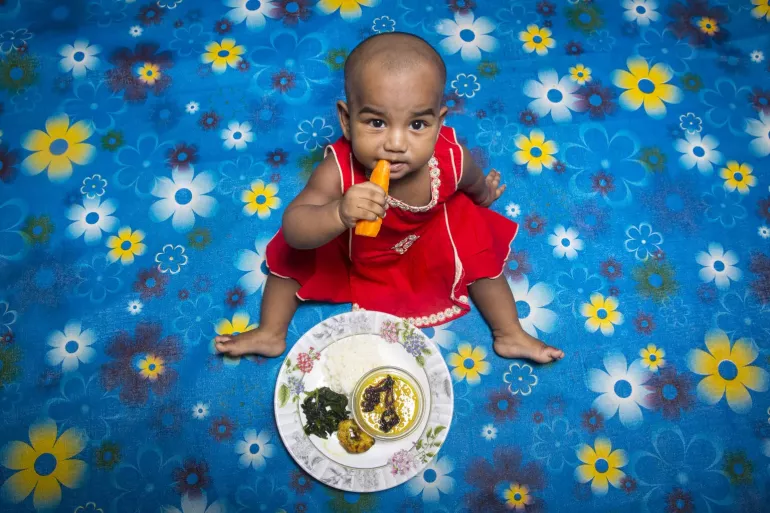ICMR Recommends Mashed Dals For Babies Rather Than “Dal kaa Pani”, Provides List of Meals That Go Well Together
In contrast to watery foods like “dal kaa pani,” the ICMR suggests foods with semi-solid consistency for infants in its most recent guidelines.
According to guidelines established lately by the Indian Council of Medical Research, it is recommended that infants be fed foods with a semi-solid consistency at six months of age, with complementary foods introduced at that time. The instructions said to begin with a thin, but not watery, porridge (dal gruel) and work your way up to a slurry consistency (well mashed or pureed foods) over the course of four to five days.
To assist Indians in making better food choices, the ICMR and the National Institute of Nutrition published 17 new dietary guidelines for Indians of all ages.
“Do not give watery foods such as dal kaa pani (lentil water), instead give mashed pulse/dals of a thicker consistency,” stated the medical research body.
After their infants spit out semi-solid or mashed foods, many parents may feed them watery foods like dal kaa pani. However, according to the rules, it can be because they’re still getting used to swallowing. According to ICMR standards, an infant spitting out semi-solid food may be a normal part of their learning how to swallow it and not a sign that they don’t like it. When they are frequently fed such foods, they reach the physiological maturity to swallow them.
If we look at the facts, they show that a baby’s tongue moves to get food out since they lack the complete motor control necessary for swallowing. As a result, it’s critical to begin by giving little amounts of semi-solid foods (two or three teaspoons).
What foods can complement this?
After a baby is six months old, breast milk is no longer enough for their proper growth, and between the ages of six and twelve months, semi-solid meals must be introduced to breastfed newborns.
According to the guidelines, an infant between the ages of six and twelve months should consume between 650 and 720 kcal per day and 9 to 10.5 g of protein per day. However, beyond six months, breast milk only offers an average of 500 Kcal and 5g of protein per day, which is insufficient for an infant’s ideal growth.
Further, diets given to newborns should be high in micronutrient-dense foods because they have a high need for micronutrients. Nutrient-dense meals including milk, nuts, oil seeds, vegetables and fruits have to be included in addition to cereals. Protein-rich foods include meat and eggs, as well as pulses like kidney beans, chickpeas, lentils, cowpeas and black grams, according to the ICMR.
However, the preeminent medical research organisation advises against giving fruit juices or beverages with added sugar to newborns; instead, they should be given fresh fruit purees or juices. The body advises, “Sugar or salt need not be added to complementary foods.”
Most suited food for infants
Six to eight-month-old newborns can be fed purees of carrots, pumpkins, spinach, potatoes, apples, mashed fish and grated boiled eggs; nine to twelve-month-old babies can have egg pudding, eggnog and grated mixed vegetables. For infants one year old and up, plain dalia, boiled egg and vegetable khichdi are appropriate.





